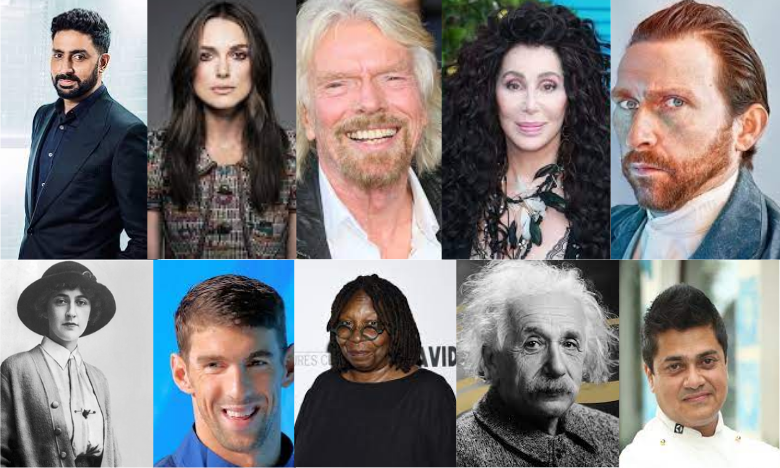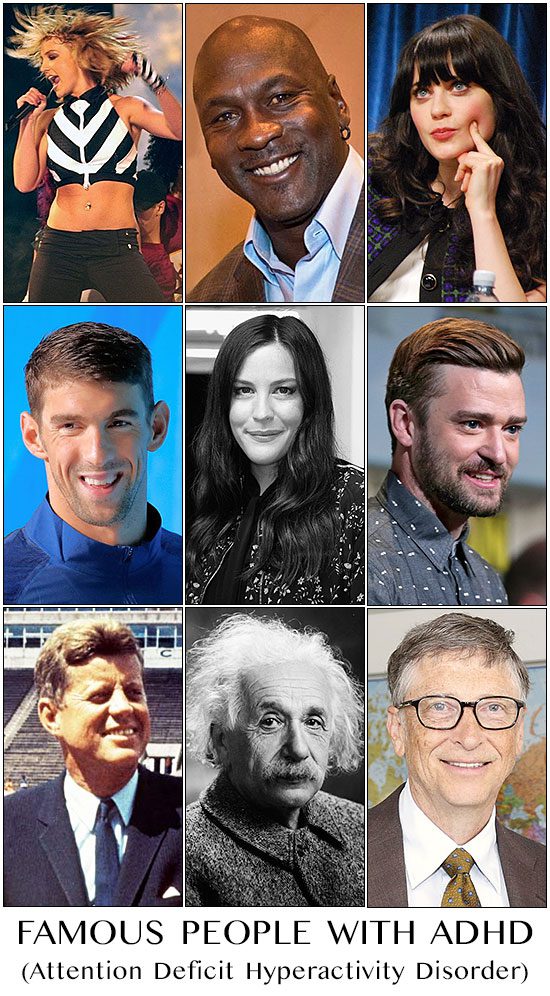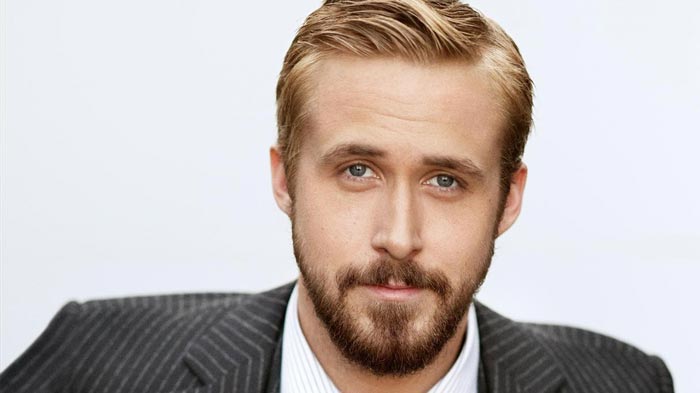Living with Attention-Deficit/Hyperactivity Disorder (ADHD) can present a unique set of challenges, from difficulties with focus and organization to impulsivity and restlessness. Yet, for many, it also comes with a remarkable array of strengths, including boundless creativity, intense hyperfocus, and an unconventional approach to problem-solving. In a world that often misunderstands neurodiversity, the stories of famous individuals who openly discuss their ADHD diagnosis are not just fascinating; they are profoundly empowering. These ADHD celebrities are breaking down stigmas, showing millions that a diagnosis doesn't define limitations, but rather offers a different lens through which to see the world and achieve extraordinary things.
From the silver screen to the Olympic arena, the music charts to the stand-up stage, countless public figures have navigated the complexities of ADHD while reaching the pinnacle of their chosen fields. Their journeys offer invaluable insights into how challenges can be transformed into triumphs, and how understanding one's own brain can unlock unparalleled potential. This article delves into the lives of some of these remarkable individuals, exploring their unique paths, the hurdles they've overcome, and the incredible achievements they've made, all while managing their ADHD.
Table of Contents
Understanding ADHD: Beyond the Stereotypes
Attention-Deficit/Hyperactivity Disorder (ADHD) is a neurodevelopmental condition that affects how people pay attention, control impulsive behaviors, and manage their activity levels. It's often misunderstood, commonly associated with hyperactive children who can't sit still. However, ADHD manifests differently in individuals, and its impact extends far beyond childhood, often continuing into adulthood. There are primarily three presentations: predominantly inattentive, predominantly hyperactive-impulsive, and combined presentation. For adults, ADHD can look like chronic disorganization, difficulty with time management, forgetfulness, impulsivity, and emotional dysregulation. It's not a character flaw or a lack of intelligence; it's a difference in brain structure and function, particularly in areas responsible for executive functions. The stigma surrounding ADHD often leads to feelings of shame or inadequacy, preventing many from seeking diagnosis and support. However, as we see with many
ADHD celebrities, understanding and managing the condition can lead to remarkable success.
The Power of Visibility: Why Celebrity Stories Matter
When public figures like actors, athletes, musicians, and scientists share their personal experiences with ADHD, it has a profound impact. Their openness helps to normalize the condition, reduce stigma, and encourage others to seek help. For someone struggling in silence, seeing a highly successful individual like Simone Biles or Mark Ruffalo openly discuss their ADHD can be a powerful source of validation and hope. It demonstrates that ADHD is not a barrier to achievement but a part of a person's unique neurocognitive profile. These stories also highlight the diversity of experiences within the ADHD community. They showcase how individuals can leverage their unique brain wiring for creativity, innovation, and perseverance. The "Additude editors medically reviewed by Additude’s ADHD Medical Review Panel updated on March 19, 2025" frequently publish articles about these inspiring figures, emphasizing the importance of accurate information and destigmatization. By learning about these 76 celebrities from different fields who have ADHD and how they overcame their challenges, we gain a broader perspective on neurodiversity.
ADHD Celebrities: Unveiling the Stories of Resilience and Success
The list of famous people with ADHD is extensive and incredibly diverse, spanning across various professions. These individuals demonstrate that ADHD is not a limitation, but often a catalyst for unique strengths and perspectives. Let's explore some of the most inspiring examples.
Simone Biles: The Olympic Gymnast Who Defied Gravity and Stigma
Simone Biles is arguably the greatest gymnast of all time, known for her unparalleled athleticism, daring routines, and numerous Olympic and World Championship medals. Her journey with ADHD became public when she responded to a leaked medical record, choosing to be transparent about her diagnosis and the medication she takes. **Biography:** Born in Columbus, Ohio, Simone Biles began gymnastics at age six. Her talent was quickly recognized, and she rapidly ascended through the ranks, making her senior international debut in 2013. She dominated the sport for years, becoming the most decorated American gymnast in history. Her decision to prioritize her mental health during the Tokyo 2020 Olympics (held in 2021) brought global attention to the pressures athletes face and the importance of self-care, further solidifying her status as an icon. **Personal Data:**
| Full Name | Simone Arianne Biles |
| Born | March 14, 1997 |
| Occupation | Artistic Gymnast |
| Known For | Most decorated American gymnast, 7 Olympic medals, 25 World Championship medals |
**ADHD Journey and Impact:** Biles' public acknowledgment of her ADHD diagnosis and the use of medication (methylphenidate) was a powerful statement against the stigma surrounding both ADHD and mental health in elite sports. She stated, "Having ADHD, and taking medicine for it, is nothing to be ashamed of, nothing that I'm afraid to let people know." Her transparency not only educated the public about the legitimate medical treatment for ADHD but also empowered countless individuals, especially young people, to be open about their own diagnoses. Her incredible focus and ability to execute complex routines under immense pressure, while managing ADHD, highlight the potential for individuals to thrive with proper support and understanding.
Mark Ruffalo: The Hulk with a Heart and ADHD
Mark Ruffalo, celebrated for his versatile acting roles, from the brilliant but tormented Bruce Banner/Hulk in the Marvel Cinematic Universe to his Oscar-nominated performances in films like "Spotlight" and "The Kids Are All Right," has also spoken about his struggles with ADHD and dyslexia. **Biography:** Born in Kenosha, Wisconsin, Mark Ruffalo moved to San Diego and then Los Angeles, where he studied acting. His early career was marked by struggles and small roles before his breakthrough in "You Can Count on Me" (2000). He has since become one of Hollywood's most respected actors, known for his nuanced performances and commitment to environmental and social activism. **Personal Data:**
| Full Name | Mark Alan Ruffalo |
| Born | November 22, 1967 |
| Occupation | Actor, Producer, Activist |
| Known For | Bruce Banner/Hulk in MCU, "Spotlight," "The Kids Are All Right," "Foxcatcher" |
**ADHD Journey and Impact:** Ruffalo has been open about his challenges with ADHD and dyslexia since childhood, describing himself as having "learning difficulties." He spoke about feeling like an outsider and struggling in traditional schooling environments. His journey reflects a common experience for many with ADHD: feeling misunderstood and struggling with conventional learning methods. Yet, his ability to channel intense focus into his acting, coupled with a deep empathy that informs his characters, could be seen as strengths often associated with neurodiversity. His success serves as an inspiration, showing that unconventional minds can find their path to greatness, especially in creative fields where different perspectives are valued.
Emma Watson: Magic Beyond Hogwarts with ADHD
Emma Watson, globally recognized as Hermione Granger from the "Harry Potter" series, has grown into a prominent actress, model, and activist. While she has not publicly discussed her ADHD diagnosis as extensively as some others, reports and fan communities often cite her as one of the
ADHD celebrities, reportedly diagnosed in childhood and managing it with medication. **Biography:** Born in Paris, France, Emma Watson moved to England at age five. She shot to international fame at the age of nine when she was cast as Hermione Granger in "Harry Potter and the Sorcerer's Stone." After the series concluded, she successfully transitioned to adult roles in films like "The Perks of Being a Wallflower" and "Beauty and the Beast." Beyond acting, she is a vocal advocate for gender equality and sustainable fashion, serving as a UN Women Goodwill Ambassador. **Personal Data:**
| Full Name | Emma Charlotte Duerre Watson |
| Born | April 15, 1990 |
| Occupation | Actress, Model, Activist |
| Known For | Hermione Granger in "Harry Potter" series, "Beauty and the Beast," "The Perks of Being a Wallflower" |
**ADHD Journey and Impact:** While Watson herself has maintained a degree of privacy regarding her medical history, the widespread belief among her fans and the ADHD community that she manages ADHD is significant. If true, her ability to maintain a demanding acting career from a young age, pursue higher education at Brown University, and engage in high-profile activism, all while navigating the complexities of ADHD, speaks volumes. It would underscore the idea that with early diagnosis, support, and self-management strategies, individuals with ADHD can achieve remarkable academic and professional success, even under intense public scrutiny.
Trevor Noah: Comedy and Insight Through an ADHD Lens
Trevor Noah, the South African comedian, writer, producer, political commentator, and former host of "The Daily Show," has openly spoken about his ADHD. His quick wit, sharp observations, and ability to connect disparate ideas are hallmarks of his comedic style, which some attribute, in part, to his neurodivergent brain. **Biography:** Born in Johannesburg, South Africa, during the apartheid era, Trevor Noah's early life was complex, growing up in a country where his existence as a mixed-race child was illegal. He began his career in South Africa, hosting a radio show and various television programs before moving to the United States and joining "The Daily Show" as a correspondent in 2014, eventually succeeding Jon Stewart as host in 2015. His memoir, "Born a Crime," became a New York Times bestseller. **Personal Data:**
| Full Name | Trevor Noah |
| Born | February 20, 1984 |
| Occupation | Comedian, Television Host, Writer, Producer |
| Known For | Host of "The Daily Show," "Born a Crime" |
**ADHD Journey and Impact:** Noah has discussed his ADHD in interviews and during his stand-up routines, often with humor and candidness. He describes how his mind is constantly racing, making connections that others might miss, which is a common experience for those with ADHD. This rapid thought process and ability to synthesize information quickly are undoubtedly assets in his career as a comedian and political satirist, allowing him to deliver sharp, insightful commentary on complex issues. His story highlights how the unique cognitive patterns of ADHD can be a powerful advantage in fields that require quick thinking, creativity, and the ability to see the world from unconventional angles. Other inspiring figures mentioned in the data, like Greta Gerwig (filmmaker) and the late Robin Williams (actor/comedian), also exemplify how the energy, creativity, and unique perspective often associated with ADHD can fuel extraordinary achievements. Robin Williams, for instance, with his brilliantly high-energy performance as Professor Brainard in "Flubber," often displayed the kind of rapid-fire humor and boundless energy that many with ADHD possess.
The Untapped Strengths of the ADHD Brain
While ADHD is often framed in terms of deficits, many researchers and individuals with ADHD highlight its inherent strengths. These include: * **Hyperfocus:** The ability to intensely concentrate on tasks that are interesting or stimulating, leading to deep engagement and mastery. Many
ADHD celebrities likely tap into this for their crafts. * **Creativity and Innovation:** The ADHD brain often makes unconventional connections, leading to novel ideas and out-of-the-box thinking. This is particularly evident in artists, writers, and entrepreneurs. * **Resilience:** Navigating a world not always designed for neurodivergent minds often builds immense resilience and problem-solving skills. * **High Energy and Enthusiasm:** When channeled effectively, this can lead to incredible productivity and passion. * **Intuition and Empathy:** Many individuals with ADHD report heightened intuition and a deep capacity for empathy, which can be invaluable in relationships and creative pursuits. * **Spontaneity and Adaptability:** The ability to think on one's feet and adapt quickly to changing circumstances. Understanding these strengths is crucial for a balanced perspective on ADHD. It shifts the narrative from one of disorder to one of difference, where unique cognitive styles are valued.
Strategies for Thriving: Lessons from Famous Individuals with ADHD
While each person's journey with ADHD is unique, the experiences of famous people with ADHD offer valuable insights into effective management and thriving strategies. Many of these strategies are likely employed by the 76 celebrities from different fields who have ADHD. * **Seeking Professional Diagnosis and Support:** The first step for many is a formal diagnosis, which can unlock access to medication, therapy (like CBT), and coaching. Simone Biles' openness about her medication highlights this crucial aspect. * **Developing Structure and Routines:** Even for those who struggle with organization, creating external structures can be immensely helpful. This might involve using calendars, alarms, or dedicated workspaces. * **Leveraging Strengths:** Identifying and focusing on areas where ADHD traits are an asset, such as creativity or hyperfocus, can lead to fulfilling careers and hobbies. Mark Ruffalo and Trevor Noah exemplify this in their artistic pursuits. * **Mindfulness and Self-Care:** Practices like meditation, exercise, and adequate sleep are vital for managing energy levels and emotional regulation, common challenges with ADHD. * **Building a Supportive Network:** Surrounding oneself with understanding friends, family, and colleagues who appreciate neurodiversity can make a significant difference. * **Advocacy and Education:** Sharing one's story, like many
ADHD celebrities do, not only helps the individual process their experience but also contributes to broader societal understanding and acceptance. * **Embracing Technology:** Apps for organization, focus, and time management can be powerful tools for managing ADHD symptoms in the modern world. These strategies, whether consciously adopted or intuitively developed, are key to transforming potential challenges into powerful advantages.
The Evolving Understanding of ADHD and Neurodiversity
The conversation around ADHD has significantly evolved. What was once seen purely as a deficit is now increasingly viewed through the lens of neurodiversity – the idea that neurological differences are simply variations of the human brain, rather than disorders to be "cured." This shift in perspective is crucial for fostering inclusivity and understanding. The continuous research and medical reviews, like those conducted by Additude's ADHD Medical Review Panel, are vital in providing up-to-date and accurate information. As of the update on March 19, 2025, the understanding of ADHD continues to deepen, moving towards personalized treatment plans that consider individual strengths and challenges. This progressive view encourages a more holistic approach, where individuals are empowered to thrive with their unique brain wiring, rather than trying to fit into a neurotypical mold. The increasing number of famous actors, athletes, singers, and more with attention deficit hyperactivity disorder who are speaking out contribute immensely to this evolving understanding.
Conclusion: A Future Where ADHD is Understood and Celebrated
The inspiring stories of
ADHD celebrities like Simone Biles, Mark Ruffalo, Emma Watson, Trevor Noah, and countless others are a powerful testament to human resilience and the diverse forms that intelligence and talent can take. They remind us that a diagnosis of ADHD is not a sentence of limitation, but rather an invitation to understand oneself more deeply and to harness unique strengths. These famous people with ADHD are not just achieving greatness; they are actively reshaping public perception, one candid conversation at a time. Their journeys highlight the importance of early diagnosis, appropriate support, and a societal shift towards embracing neurodiversity. By seeing their stories, challenges, and achievements with ADHD, we learn that success isn't about conforming to a single mold, but about discovering and leveraging one's authentic self. We encourage you to explore more about these remarkable individuals and to share their stories. What are your thoughts on how celebrity advocacy impacts the perception of ADHD? Share your comments below, and consider reading other articles on our site that delve deeper into neurodiversity and personal growth.


